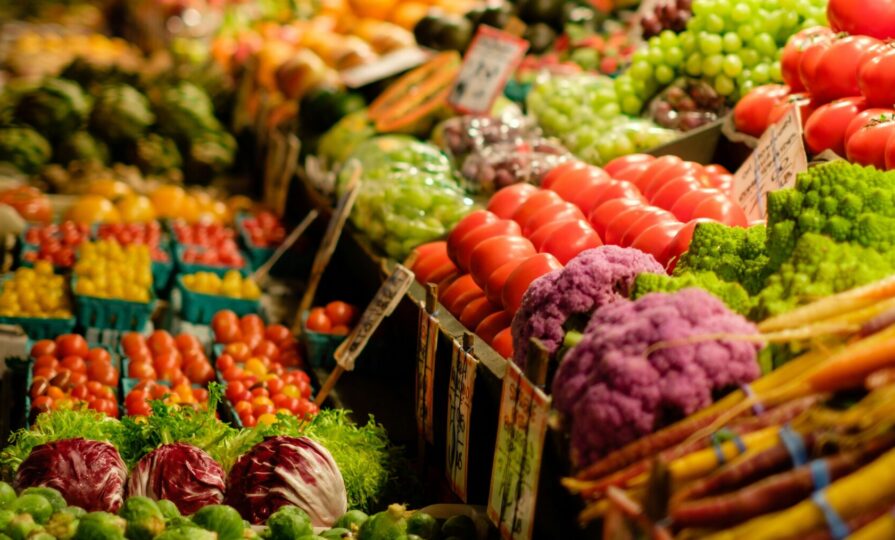Practical ways grocery stores can reduce food waste

Inefficient supply chains often leave grocery retailers to deal with large amounts of food waste. Other factors such as the economic pressure of unsold products, the environmental impact of wasted resources, and the ethical questions arising from discarding edible food, have increasingly thrown the spotlight on grocery retailers to improve their food waste strategies.
In 2022, retailers generated 4.99 million tons of surplus food, nearly 35% of which went to landfill or was incinerated as waste. Most of this came from produce (31.3%), dairy and eggs (14.1%), and fresh meat and seafood (13.6%), and more than half was caused by concerns or confusion over freshness date labels. Importantly, 19.5% – more than any other sector – was given as donations to those struggling with food insecurity.
Listed below are few practical ways grocery retailers can reduce food waste:
Implement smart inventory management systems and merchandising techniques
Implementing smart inventory management systems can help grocery retailers reduce food waste by utilising technology and data analytics to monitor product expiration dates and manage inventory levels. While, merchandising strategies can ensure timely consumption of perishable products and minimise waste. It also helps retailers maximise sales opportunities. Perishable products such as fruits and vegetables should be rotated throughout the day as they can go bad quickly.
Walmart’s Intelligent Retail Lab is one such example which optimises stock levels, cutting waste and taking advantage of sales trends, by automating product identification and comparing quantities with predicted sales demand.
Educate staff and customers
With the right staff training programmes retailers can minimise overstocking and optimise product rotation to prevent spoilage. Training staff to spot edible food items with minor defects can help with attempts to divert these goods to donation channels. On the other hand, customer education campaigns can encourage mindful shopping practices, such as just buying what is necessary and reading date labels to avoid throwing away perfectly good food too soon.
For instance Metro Cash and Carry in Germany have prioritised staff training on hygiene, food safety, and sustainable resource handling, resulting in reduced food loss, increased marketable products, and heightened awareness.
Donate surplus food to charities
Redistributing and donating unsold produce to charities presents a viable opportunity for grocery retailers to avoid food waste. Recent data has revealed that in the UK, the top 10 chains donate less than 9% of their surplus food for human consumption. Partnering with food banks and local charities can aid retailers redirect excess food that is nearing its best before dates. Tesco leads in surplus food donation, targeting zero waste by optimising forecasting and clearance processes, achieving 77% waste reduction.
Donating excess food can also reduce disposal costs and align with the retailer’s sustainability goals, demonstrating a commitment to ethical and sustainable business practices. The European Food Banks Federation encourages innovative approaches, like collaborating with local restaurants, creating anti-waste cookbooks, and utilising surplus redistribution apps.
Accept imperfect produce
It has been recorded that 15% of all produced food is lost before leaving the farm as retailers reject perfectly edible food based on appearance. They prioritise uniformity over taste ecological wellness which results in massive food waste. However, by accepting imperfect produce and selling them at discounted prices can help reduce food waste. It not only provides a market for rejected items but also saves tons of greenhouse gases and water required to grow each piece.
Offer discounts
As mentioned above along with providing discounts on imperfect produce, retailers can also offer special prices for perishable items nearing their expiry date. This initiative can help customers purchase these items before they are discarded.
Offering discounts can also help grocery retailers to effectively manage their inventory as it enables them to get rid of excess stock before it spoils. However, it is also important for retailers to strike a balance with discounting to avoid devaluing their products or negatively impacting profitability.
Compost
Composting systems can help convert food waste into nutrient-rich compost that can be used to enrich soil for agricultural purposes or landscaping. When organic waste decomposes in landfills, it produces methane, a potent greenhouse gas. Composting not only reduces the volume of waste but also mitigates methane emissions, contributing to sustainability.
Items such as fruit and vegetable peelings, coffee grounds, tea bags, and shredded paper are suitable for composting. However composting materials such as meat and dairy products, can attract pests and release an unpleasant odour. Alternative waste management methods should be used to dispose of these materials.



